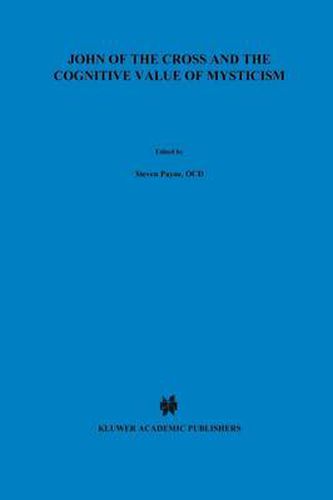Readings Newsletter
Become a Readings Member to make your shopping experience even easier.
Sign in or sign up for free!
You’re not far away from qualifying for FREE standard shipping within Australia
You’ve qualified for FREE standard shipping within Australia
The cart is loading…






This title is printed to order. This book may have been self-published. If so, we cannot guarantee the quality of the content. In the main most books will have gone through the editing process however some may not. We therefore suggest that you be aware of this before ordering this book. If in doubt check either the author or publisher’s details as we are unable to accept any returns unless they are faulty. Please contact us if you have any questions.
Among Anglo-American philosophers, interest in mysticism has typically been limited to the question of whether or not mystical and religious experi ences provide evidence for, or knowledge of, the existence and nature of God. Most authors conclude that they do not, because such experiences lack certain qualities needed in order to be counted as cognitive. In this study I examine some current philosophical opinions about mysticism and objec tions to its epistemic significance in the context of a detailed study of the writings of a single mystical author, the Spanish Carmelite Saint John of the Cross (1542-1591). I argue that from his works one can draw a coherent theory of what takes place in the Christian mystical life, and will indicate how acceptance of this theory might be defended as rational through a type of inference often referred to as the Argument to the Best Explanation.
In this way I hope to show that mysticism still has a significant bearing on the justification of religious faith even if it cannot be used to prove the exis tence of God. The nature and advantages of my own somewhat unusual approach to mysticism can perhaps best be explained by contrasting it with the way other authors have dealt with the subject. One of the most striking develop ments in recent decades has been the growing fascination with mysticism, meditation, and the experiential aspects of religion.
$9.00 standard shipping within Australia
FREE standard shipping within Australia for orders over $100.00
Express & International shipping calculated at checkout
This title is printed to order. This book may have been self-published. If so, we cannot guarantee the quality of the content. In the main most books will have gone through the editing process however some may not. We therefore suggest that you be aware of this before ordering this book. If in doubt check either the author or publisher’s details as we are unable to accept any returns unless they are faulty. Please contact us if you have any questions.
Among Anglo-American philosophers, interest in mysticism has typically been limited to the question of whether or not mystical and religious experi ences provide evidence for, or knowledge of, the existence and nature of God. Most authors conclude that they do not, because such experiences lack certain qualities needed in order to be counted as cognitive. In this study I examine some current philosophical opinions about mysticism and objec tions to its epistemic significance in the context of a detailed study of the writings of a single mystical author, the Spanish Carmelite Saint John of the Cross (1542-1591). I argue that from his works one can draw a coherent theory of what takes place in the Christian mystical life, and will indicate how acceptance of this theory might be defended as rational through a type of inference often referred to as the Argument to the Best Explanation.
In this way I hope to show that mysticism still has a significant bearing on the justification of religious faith even if it cannot be used to prove the exis tence of God. The nature and advantages of my own somewhat unusual approach to mysticism can perhaps best be explained by contrasting it with the way other authors have dealt with the subject. One of the most striking develop ments in recent decades has been the growing fascination with mysticism, meditation, and the experiential aspects of religion.